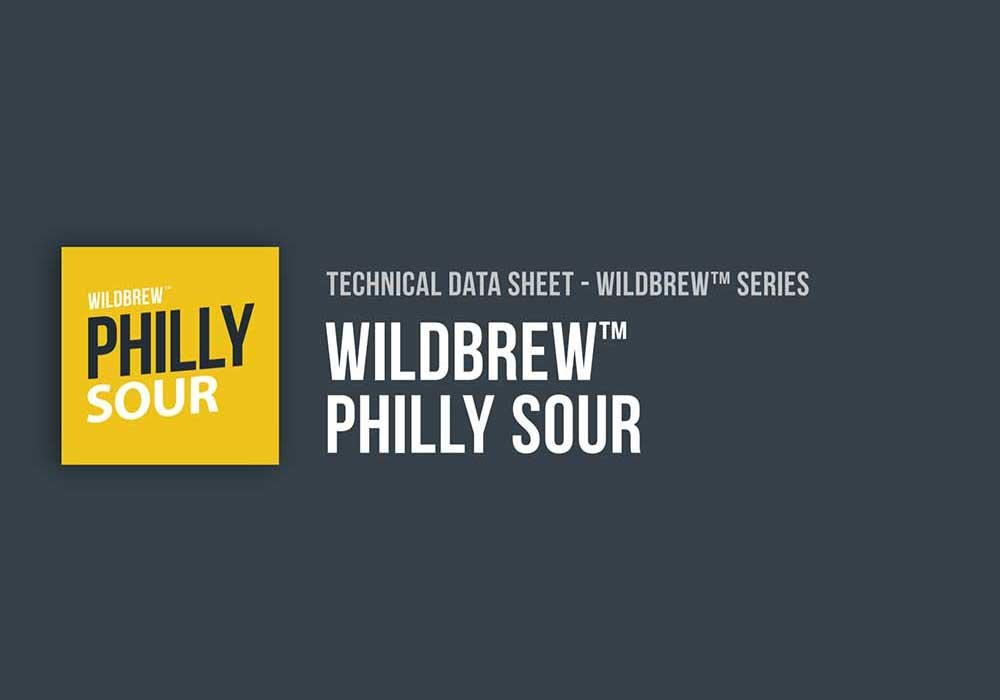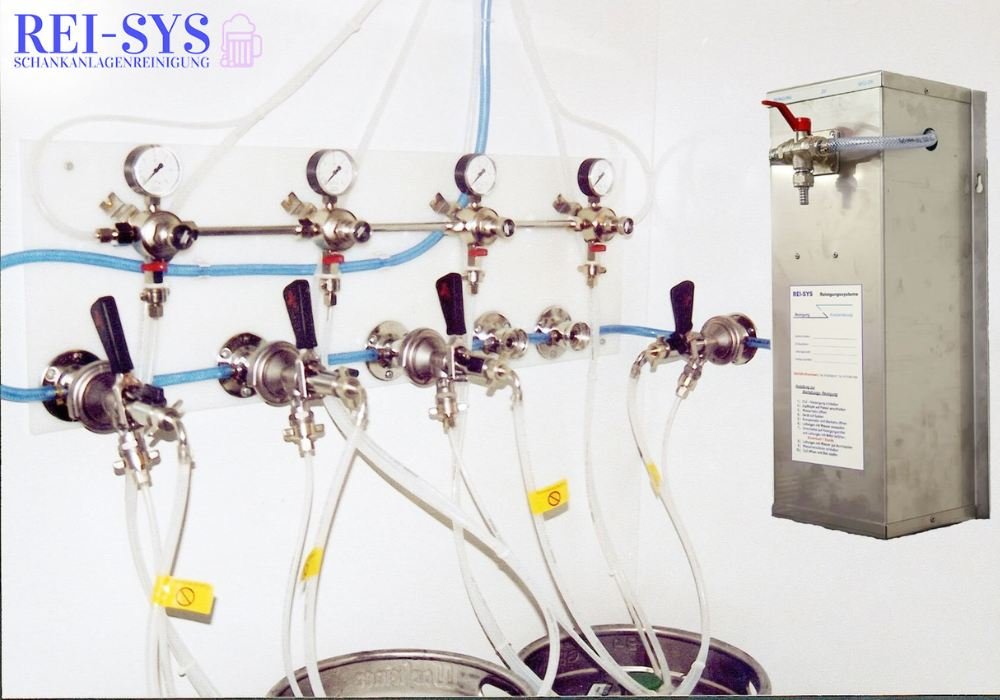Lallemand’s All-New WildBrew™ Philly Sour is out. Here’s the 101.

 WildBrew™ Philly Sour is a unique species of Lachancea selected from nature by University of the Sciences in Philadelphia, PA, USA (Patent pending N° PCT/US20 18/043 148). WildBrew™ Philly Sour produces moderate amounts of lactic acid in addition to ethanol in one simple fermentation step. This first yeast in the WildBrew™ series is a great choice for innovative, sessionable sour beers with refreshing acidity and notes of stone fruit. With high attenuation, high flocculation and good head retention, WildBrew™ Philly Sour is an ideal yeast for traditional styles such as Berliner Weiss, Gose, American Lambic Style, American Wild Ales and its resistance to hops make it perfect for Sour IPAs.
WildBrew™ Philly Sour is a unique species of Lachancea selected from nature by University of the Sciences in Philadelphia, PA, USA (Patent pending N° PCT/US20 18/043 148). WildBrew™ Philly Sour produces moderate amounts of lactic acid in addition to ethanol in one simple fermentation step. This first yeast in the WildBrew™ series is a great choice for innovative, sessionable sour beers with refreshing acidity and notes of stone fruit. With high attenuation, high flocculation and good head retention, WildBrew™ Philly Sour is an ideal yeast for traditional styles such as Berliner Weiss, Gose, American Lambic Style, American Wild Ales and its resistance to hops make it perfect for Sour IPAs.
Microbiological Properties
 WildBrew™ Philly Sour is a pure strain of active dried yeast classified as Lachancea spp.
WildBrew™ Philly Sour is a pure strain of active dried yeast classified as Lachancea spp.
Typical Analysis of Philly Sour Yeast:
Percent solids: 93% – 96%
Viability: ≥ 1 x 109 CFU per gram of dry yeast
Wild Yeast: Wild Yeast WildBrew™ Philly Sour will grow on wild yeast media including Lysine, LCSM and LWYM
STA1 gene: Pure strain is STA1 negative. Contamination is undetectable by PCR test
Bacteria: <1 per 1 x 106 yeast cells. The finished product is released to the market only after passing a rigorous series of tests.
 Brewing Properties
Brewing Properties
In Lallemand’s Standard Conditions Wort at 20°C (68°F) WildBrew™ Philly Sour yeast exhibits:
- Fermentation that can be completed in 10 days.
- High attenuation and high flocculation.
- Aroma and flavor is sour, red apple and stone fruit, notably peach.
- The optimal temperature range for WildBrew™ Philly Sour yeast when producing traditional styles is 20°C(68°F) to 25°C(77°F).
- In the Lallemand standard conditions wort, typical pH of 3.2-3.5 and titratable acidity of 0.1-0.4% lactic acid are achieved. Higher lactic acid levels will be achieved in worts that are higher in glucose.
Lag phase, total fermentation time, attenuation and flavor are dependent on pitch rate, yeast handling, fermentation temperature and nutritional quality of the wort.
Usage
The pitch rate will affect the fermentation performance and flavor of the beer. For WildBrew™ Philly Sour yeast, a pitch rate 50-100 g per hL of the wort is sufficient to achieve a minimum of 0.5 – 1 million viable cells/mL. More stressful fermentations such as high gravity, high adjunct or high acidity may require higher pitch rates and additional nutrients to ensure a healthy fermentation.
Standard pitch rate calculators may result in overpitching. Visit our Pitch Rate Calculator optimized for dry yeast samples at www.lallemandbrewing.com
WildBrew™ Philly Sour is a slow fermenting, killer negative strain and will tend to be outcompeted by other brewing strains. For this reason, it is not recommended to re-pitch this strain. WildBrew™ Philly Sour is not recommended for bottle conditioning applications. A dedicated bottle conditioning strain such as LalBrew® CBC-1 should be used when bottle conditioning WildBrew™ Philly Sour fermentations. As a non-Saccharomyces species, WildBrew™ Philly Sour should be treated according to normal best practices for handling wild yeast.
Storage
WildBrew™ Philly Sour yeast should be stored in a vacuum-sealed package in dry conditions below 4°C (39°F). WildBrew™ Philly Sour will rapidly lose activity after exposure to air. Do not use packs that have lost vacuum. Opened packs must be re-sealed, stored in dry conditions below 4°C (39°F), and used within 3 days. If the opened package is re-sealed under vacuum immediately after opening, yeast can be stored below 4C° (39°F) until the indicated expiry date. Do not use yeast after the expiry date printed on the pack. Performance is guaranteed when stored correctly and before the expiry date. However, Lallemand dry brewing yeast is very robust and some strains can tolerate brief periods under sub-optimal conditions.
Rehydration
Rehydration of WildBrew™ Philly Sour in sterile water is recommended prior to pitching into the wort in order to reduce stress on the cell as it transitions from dry to liquid form. For many fermentations, this stress is not significant enough to affect fermentation performance and flavor, so good results may also be achieved when pitching dry yeast directly into the wort. We highly recommend rehydration in harsher fermentation conditions such as high gravity or sour wort where the added stress of dry-pitching is more likely to have a greater impact on the finished beer. The use of a rehydration nutrient such as Go-Ferm Protect Evolution has been shown to improve fermentation performance for difficult fermentations.
Rehydration guidelines are quite simple and present a much lower risk of contamination than a starter, which is unnecessary when using the recommended pitch rate of dried active yeast.
Sprinkle the yeast on the surface of 10 times its weight in clean, sterilized water at 30-35°C (86-95F). Do not use wort, or distilled or reverse osmosis water, as loss in viability may result. Stir gently, leave undisturbed for 15 minutes, then stir to suspend yeast completely. Leave it to rest for 5 more minutes at 30-35°C.
Without delay, adjust the temperature to that of the wort by mixing aliquots of wort with the rehydrated yeast. Wort should be added in 5-minute intervals and taking care not to lower the temperature by more than 10°C at a time. Temperature shock of >10°C will cause the formation of petite mutants leading to extended or incomplete fermentation and the possible formation of undesirable flavors. Do not allow attemperation to be carried out by natural heat loss. This will take too long and could result in loss of viability or vitality.
Inoculate without delay into cooled wort in the fermenter. WildBrew™ Philly Sour yeast has been conditioned to survive rehydration. The yeast contains an adequate reserve of carbohydrates and unsaturated fatty acids to achieve active growth. It is unnecessary to aerate wort upon first use.
 Any questions? Contact Lallemand’s team of technical representatives who will be happy to help and guide you in your fermentation journey! Write to brewing@lallemand.com. For more information, visit them online at www.lallemandbrewing.com.
Any questions? Contact Lallemand’s team of technical representatives who will be happy to help and guide you in your fermentation journey! Write to brewing@lallemand.com. For more information, visit them online at www.lallemandbrewing.com.



